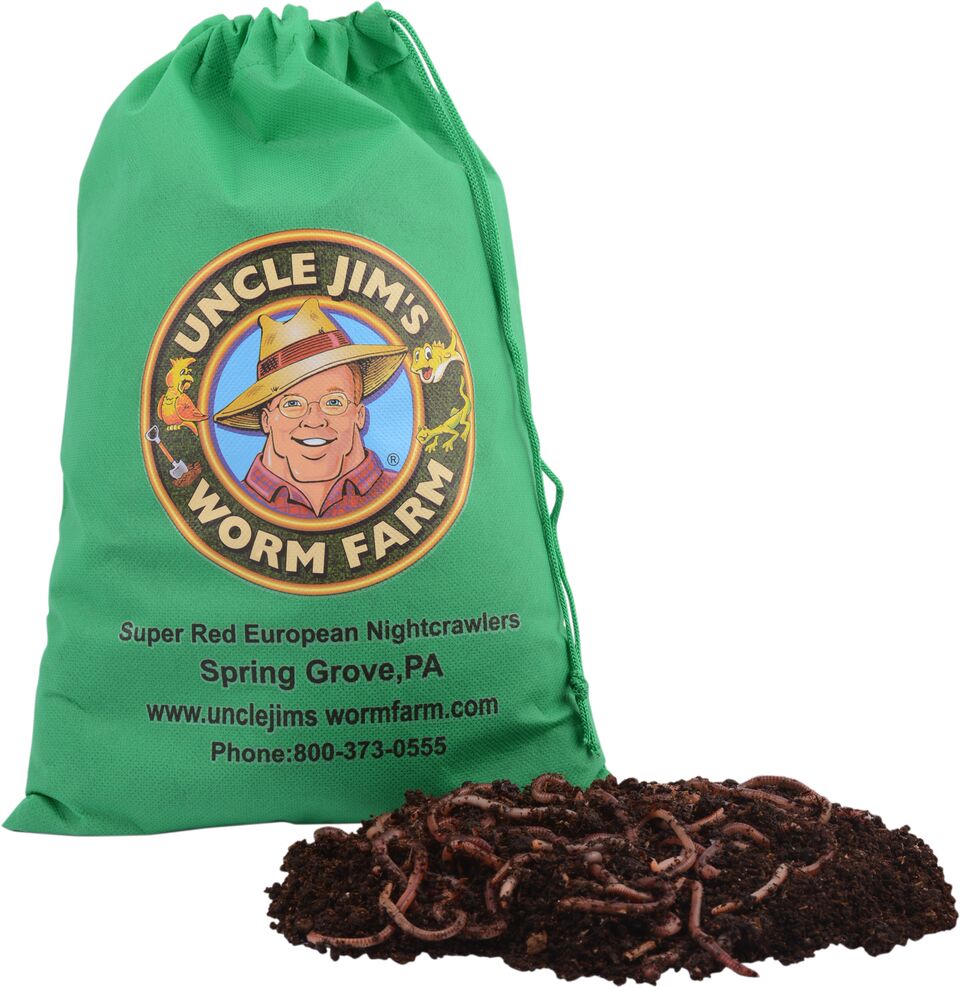European Night Crawlers For Sale – In times of financial hardship, such as during recessions or periods of high unemployment, more people may turn to second-hand goods as a way to save money. Furniture is another category that lends itself well to the second-hand market. This sense of history and individuality is part of what makes second-hand shopping so appealing. Additionally, there is the challenge of integrating the business into their existing operations and ensuring that it continues to thrive under new ownership. They are intended to last for a limited amount of time, after which they become outdated, broken, or no longer functional. Similarly, during periods of economic growth, there may be a greater willingness to spend on luxury second-hand items, such as high-end fashion or collectible items. By choosing second-hand goods, consumers can help reduce waste, conserve resources, and lessen the demand for new production. On the other hand, traditional industries such as brick-and-mortar retail or manufacturing may face challenges, with many businesses in these sectors looking to sell or transition due to changing market conditions. For sellers, this creates an opportunity to declutter their homes and make some extra money, while buyers have access to a vast marketplace of affordable, unique, and sustainable products. Similarly, gently used clothing from high-end brands can be found for a fraction of their original retail price. For sale, it seems like a simple phrase, yet it carries with it an array of possibilities, emotions, and decisions that can shape someone’s life. It is only through diligent research that a buyer can truly determine whether the business is worth the asking price. The role of business brokers and intermediaries has become increasingly important in today’s business-for-sale market. Beyond financial savings and environmental impact, second-hand goods also offer a sense of nostalgia and connection to the past. Additionally, brick-and-mortar thrift stores and consignment shops provide a more traditional avenue for selling second-hand goods. On the other, there’s the challenge of assessing the true value of a business, navigating the complex negotiations, and ensuring that the business is a sound investment in terms of both its financial health and its long-term viability. Whether buying or selling, the process requires careful consideration, transparent communication, and a thorough understanding of both the financial and operational aspects of the business. In this sense, purchasing pre-owned items can be seen as a form of social responsibility, as it helps create a positive impact that extends beyond the individual buyer. But in the end, whether it’s an item or an individual, the process of being “for sale” is a negotiation of worth, a moment of exchange. The rise of minimalism and a desire for unique, vintage items has also played a role in the growing popularity of second-hand goods.

2 LBS European Nightcrawlers Worms4Earth Worms For Sale Buy worms
Read ratings & reviewsshop our huge selectiondeals of the dayshop best sellers

European Nightcrawelrs For Sale
Read ratings & reviewsshop our huge selectiondeals of the dayshop best sellers

European Nightcrawlers Eisenia hortensis (25 count)
Read ratings & reviewsshop our huge selectiondeals of the dayshop best sellers

Speedy Worm 100 Count Live European Nightcrawlers they are a 2" 3
Read ratings & reviewsshop our huge selectiondeals of the dayshop best sellers

500 Super Reds European Night Crawlers Uncle Jim's Worm Farm
Read ratings & reviewsshop our huge selectiondeals of the dayshop best sellers

European Nightcrawlers for Sale, 500 count
Read ratings & reviewsshop our huge selectiondeals of the dayshop best sellers

Bulk European Nightcrawlers for Sale Free Shipping Pure Stock
Read ratings & reviewsshop our huge selectiondeals of the dayshop best sellers

250 Super Reds European Night Crawlers Uncle Jim's Worm Farm
Read ratings & reviewsshop our huge selectiondeals of the dayshop best sellers

European Nightcrawlers for Sale, 500 count
Read ratings & reviewsshop our huge selectiondeals of the dayshop best sellers

250 Super Reds European Night Crawlers Uncle Jim's Worm Farm
Read ratings & reviewsshop our huge selectiondeals of the dayshop best sellers
Many quality goods are made by artisans or small businesses who take the time to create products that reflect their expertise and passion. It carries the marks of life’s moments: the road trips, the adventures, the daily commutes, the memories of friends and family. Whether buying or selling, the process requires careful consideration, transparent communication, and a thorough understanding of both the financial and operational aspects of the business. Many factors can influence the negotiation, such as the business’s financial performance, industry trends, and the level of interest from other buyers. From online platforms to local thrift stores, second-hand goods offer an opportunity for consumers to access unique products, save money, and reduce their environmental footprint. The culture of buying second-hand goods is rapidly shifting in the modern world, particularly among younger generations. The production of new goods often requires significant resources, such as raw materials, energy, and labor, while also generating waste and contributing to pollution. The satisfaction of purchasing quality is often deeply intertwined with the knowledge that your money is going toward something that truly deserves it. The resale of pre-owned clothing has become a booming industry in recent years, with second-hand stores and online marketplaces thriving as more consumers opt for affordable, sustainable alternatives to fast fashion. These goods, once owned and used by someone else, offer a unique opportunity for both sellers and buyers to exchange items that might otherwise go unused. This can be particularly advantageous for entrepreneurs who might have experience in business operations but lack the time or resources to build a new venture from the ground up. The rise of online platforms dedicated to the sale of second-hand goods has also played a significant role in the growing popularity of pre-owned items. Buyers can often filter search results by price, condition, and location, making it easier to find the best deals. They remind us that, despite living in a world where everything is for sale, there are some things that remain priceless. This shift from a linear economy, where products are made, used, and disposed of, to a circular one, where products are continually reused and repurposed, is a step towards a more sustainable and environmentally friendly world. Influencers sell their attention, their opinions, their lives — all of it has become a form of commerce. They believe that certain things, like love, loyalty, and friendship, should be above the reach of commerce. The act of selling a home is a deeply emotional process, and when it’s completed, there’s a sense of closure and anticipation for what comes next. These brick-and-mortar stores offer a different shopping experience, one that is often characterized by the thrill of the hunt. Both buyers and sellers should approach transactions with honesty and transparency to ensure a smooth exchange.
The growing interest in second-hand goods can also be attributed to shifting cultural attitudes toward consumption. Second-hand goods for sale have become an integral part of today’s economy, a trend that transcends geographic, economic, and cultural boundaries. For many people, there is something uniquely satisfying about sifting through racks of clothes, rummaging through bins of books, or browsing shelves of home goods in search of that perfect item. This sense of history and individuality is part of what makes second-hand shopping so appealing. When you buy something made from premium materials, crafted with attention to detail, and tested for reliability, you can expect it to deliver value that surpasses its initial cost. For many, purchasing second-hand goods is not just about saving money, but about embracing sustainability, supporting a circular economy, and contributing to a more environmentally conscious world. For book lovers, buying second-hand books is an affordable way to build a library, and it can also be an opportunity to find rare or out-of-print titles that are no longer available in stores. Cars, too, are often sold with a sense of transition. In this world, emotions can feel like products, available to be consumed at will and disposed of when they no longer serve a purpose. Many everyday products, such as kitchenware, footwear, and tools, can also be considered quality goods, provided they are made to last and perform well over time. Perhaps the most troubling aspect of the idea that everything is for sale is how it can shape the way we view the world and each other. This shift in mindset has contributed to a growing acceptance and even celebration of second-hand shopping, making it a mainstream activity that is not just about saving money but about making more thoughtful and responsible choices. The object becomes more than just an object – it transforms into a transaction, an exchange of value. Whether it’s a high-end designer handbag, a gently used sofa, or a vintage record player, the price difference between a new and a second-hand item can be significant. In some cases, sellers may be willing to offer financing options, where they agree to receive payment over time, which can make the business more attractive to potential buyers. Workers are often paid meager wages for their labor, while corporations amass wealth. With the rise of online platforms and a growing cultural shift toward sustainability, the second-hand market continues to thrive, providing consumers with more options and opportunities than ever before. As society has evolved, the scale of production has expanded, and many quality goods are now mass-produced or distributed through large retail chains. These platforms allow users to browse listings, communicate with sellers, and make purchases from the comfort of their own homes. Even objects with little intrinsic value can be sold with great meaning.